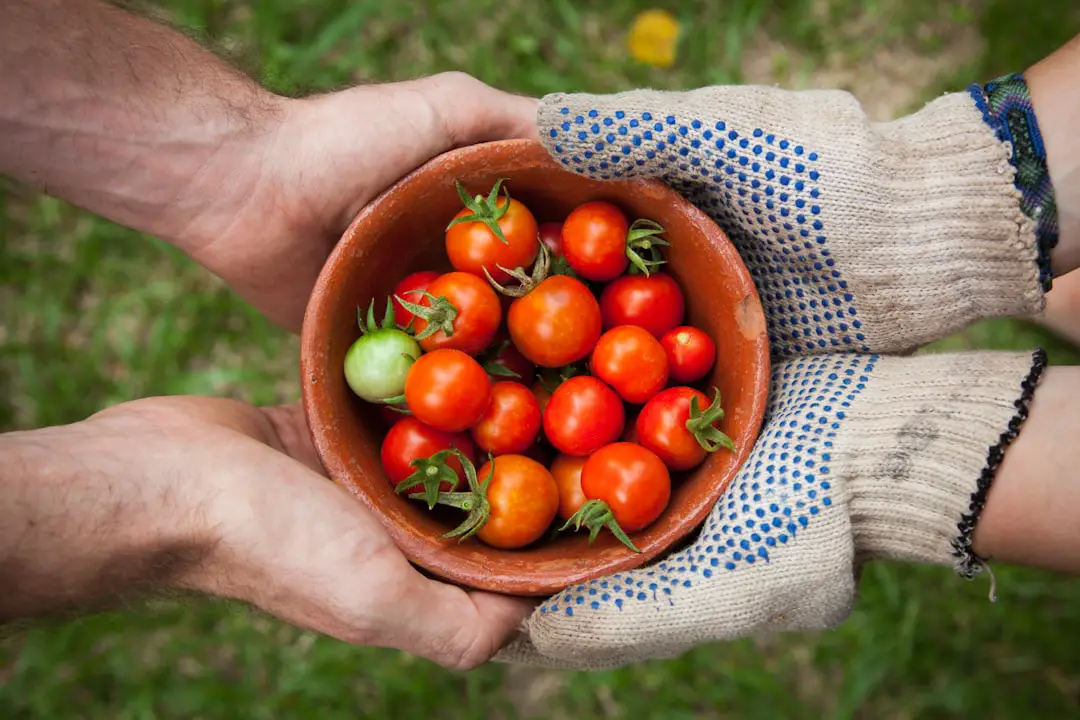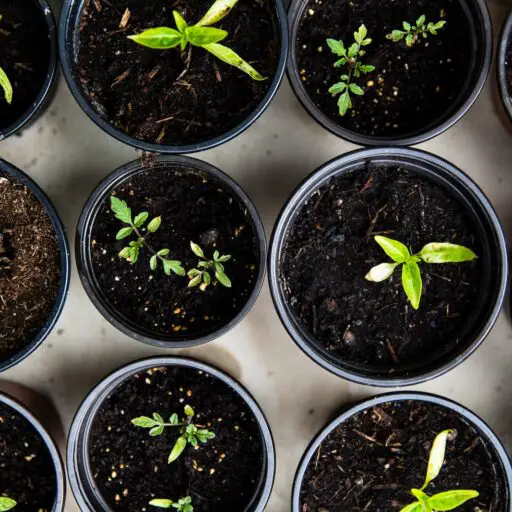Support our educational content for free when you purchase through links on our site. Learn more

Have you ever wondered if those vibrant community gardens popping up in your neighborhood could actually save you money? 🤔 Well, you’re not alone! As we dive into the world of community gardening, you’ll discover that these green havens offer more than just fresh produce. From slashing your grocery bills to fostering community connections, the financial benefits are as rich as the soil itself.
Imagine walking through a garden filled with ripe tomatoes, fragrant basil, and colorful peppers, all grown by your neighbors. Not only are you enjoying the fruits of their labor, but you’re also part of a movement that promotes sustainability and social well-being. In this article, we’ll explore 10 surprising ways community gardens can save you money while enriching your life and the lives of those around you. Ready to dig in? Let’s get started!
Key Takeaways
- Significant Cost Savings: Growing your own food can dramatically reduce grocery bills.
- Shared Resources: Community gardens provide access to tools and seeds, minimizing individual expenses.
- Environmental Impact: Local food production reduces transportation emissions and promotes sustainability.
- Social Connections: Engaging with neighbors fosters community spirit and shared experiences.
- Health Benefits: Access to fresh produce encourages healthier eating habits and physical activity.
If you’re ready to start your gardening journey, check out our top picks for Gardening Tools and Heirloom Seeds to get you started! 🌼
Table of Contents
- Quick Tips and Facts
- The Financial Impact of Community Gardens: A Historical Perspective
- What Are Community Gardens and How Do They Work?
- Top 10 Ways Community Gardens Save You Money
- The Ripple Effect: How Community Gardens Benefit Local Economies
- Reducing Your Carbon Footprint Through Community Gardening
- A Multitude of Benefits: More Than Just Savings
- Gardening Tips, Videos, Info, and More Delivered Right to Your Inbox!
- Engaging with Your Community: The Social Benefits of Gardening
- Sustainable Practices in Community Gardening
- Conclusion
- Recommended Links
- FAQ
- Reference Links
Quick Tips and Facts (#quick-tips-and-facts)
Want to save money on groceries and connect with your community? 🤔 Community gardens might be the answer! Here are some quick tips and facts:
- Start Small: Don’t feel pressured to plant a massive garden right away. Begin with a few easy-to-grow vegetables like lettuce, radishes, and beans. You can always expand your plot or add more variety as you gain experience.
- Choose the Right Location: Look for a sunny spot with well-drained soil. Most vegetables need at least 6 hours of direct sunlight daily.
- Test Your Soil: Before you start planting, it’s a good idea to test your soil’s pH level. This will help you determine if any amendments are needed for optimal plant growth.
- Water Wisely: Water deeply and less frequently to encourage strong root development. Early morning watering is best to minimize evaporation.
- Mulch, Mulch, Mulch: Applying a layer of mulch around your plants helps retain moisture, suppress weeds, and regulate soil temperature.
- Be a Good Neighbor: Follow the community garden’s rules and guidelines, and be respectful of your fellow gardeners.
- Have Fun! Gardening should be an enjoyable experience. Relax, connect with nature, and enjoy the fruits (and vegetables!) of your labor.
Now, let’s dig deeper into the world of community gardens and explore how they can help you save money! 💰🌱
The Financial Impact of Community Gardens: A Historical Perspective (#the-financial-impact-of-community-gardens-a-historical-perspective)
Community gardens are not a new concept. In fact, they have a rich history dating back centuries, often emerging during times of economic hardship and social change. Let’s take a trip down memory lane:
- Pingree’s Potato Patches (1893): During the economic recession of 1893, Hazen S. Pingree, the mayor of Detroit, Michigan, initiated a program that allowed residents to plant potatoes on vacant city lots. These “Pingree’s Potato Patches” provided much-needed food relief for struggling families.
- Victory Gardens (WWI & WWII): During World War I and II, governments around the world encouraged citizens to plant “Victory Gardens” to supplement food rations and boost morale. These gardens not only helped alleviate food shortages but also fostered a sense of community and patriotism.
These historical examples highlight the important role that community gardens have played in providing food security and economic resilience during challenging times. Today, community gardens continue to offer a multitude of benefits, including financial savings, environmental sustainability, and social cohesion.
What Are Community Gardens and How Do They Work? (#what-are-community-gardens-and-how-do-they-work)
A community garden is a shared space where people come together to grow fruits, vegetables, herbs, and flowers. They are typically located on publicly or privately owned land that is made available for gardening purposes.
Here’s how they usually work:
- Finding a Community Garden: You can often find community gardens through your local government, parks and recreation department, or community organizations. Websites and apps like the American Community Gardening Association can also help you locate gardens in your area.
- Joining a Community Garden: Most community gardens require a small annual fee to help cover expenses such as water, tools, and maintenance. Some gardens may have waiting lists, so it’s a good idea to inquire early in the season.
- Getting Your Plot: Once you’ve joined a community garden, you’ll typically be assigned a plot of land to cultivate. The size of the plot may vary depending on the garden’s rules and the number of members.
- Gardening Responsibilities: As a community gardener, you’ll be responsible for planting, tending, and harvesting your plot. You may also be expected to participate in shared tasks such as weeding, watering common areas, and maintaining tools.
Community gardens offer a fantastic opportunity to grow your own food, learn new skills, and connect with your neighbors. Plus, they can be a great way to save money! Speaking of saving money, let’s explore the top 10 ways community gardens can help you stretch your budget.
Top 10 Ways Community Gardens Save You Money (#top-10-ways-community-gardens-save-you-money)
Ready to discover the financial benefits of community gardening? Let’s dive into the top 10 ways these green spaces can help you save:
- Reduced Grocery Bills: This one’s a no-brainer! Growing your own produce means less reliance on expensive grocery stores. Imagine swapping those pricey organic tomatoes for your very own homegrown harvest! 🍅
- Access to Free or Low-Cost Seeds and Plants: Many community gardens have seed swaps or plant exchanges where members can share their bounty. This can save you a bundle on starting your garden each year.
- Shared Resources and Tools: Community gardens often provide shared resources like water, hoses, tools, and even compost bins. This means you won’t have to shell out for expensive equipment yourself.
- Learning from Experienced Gardeners: Community gardens are teeming with knowledgeable folks who are happy to share their expertise. You can glean valuable tips on everything from soil preparation to pest control, saving you from costly mistakes.
- Bulk Purchasing Power: Some community gardens organize group purchases of soil amendments, fertilizers, or other gardening supplies at discounted rates. This can be a great way to save money on essential items.
- Preserving the Harvest: Community gardens often host workshops or classes on food preservation techniques like canning, pickling, and freezing. This allows you to enjoy the fruits of your labor year-round and reduce food waste.
- Selling or Bartering Excess Produce: Have a bumper crop of zucchini? Many community gardens allow members to sell or barter their excess produce, providing an opportunity to earn some extra cash or trade for other goods and services.
- Reduced Transportation Costs: By growing your own food locally, you’ll reduce your reliance on supermarkets and the associated transportation costs. This is not only good for your wallet but also for the environment.
- Healthier Eating Habits: Access to fresh, affordable produce can encourage healthier eating habits, potentially leading to long-term healthcare savings.
- Increased Physical Activity: Gardening is a great way to get some exercise and fresh air. By staying active and healthy, you may reduce your risk of developing certain health conditions, leading to potential healthcare savings down the line.
As you can see, community gardens offer a wealth of financial benefits, making them a smart choice for budget-conscious individuals and families. But the advantages don’t stop there! Let’s explore how community gardens can positively impact local economies.
The Ripple Effect: How Community Gardens Benefit Local Economies (#the-ripple-effect-how-community-gardens-benefit-local-economies)
Community gardens are more than just green spaces; they can be economic engines that revitalize neighborhoods and create a ripple effect of positive change. Here’s how:
- Job Creation: Some community gardens create job opportunities through garden management, workshops, or even small-scale food production initiatives.
- Support for Local Businesses: Community gardens can boost demand for local businesses, such as garden centers, nurseries, and farmers’ markets.
- Increased Property Values: Studies have shown that properties located near community gardens tend to have higher property values. This can benefit homeowners and generate more property tax revenue for the city.
- Tourism and Recreation: Well-maintained community gardens can become local attractions, drawing visitors and contributing to the local tourism industry.
- Reduced Healthcare Costs: By promoting healthy eating habits and physical activity, community gardens can contribute to a healthier population, potentially reducing healthcare costs in the long run.
As you can see, the economic benefits of community gardens extend far beyond individual savings. They have the power to strengthen local economies, create jobs, and improve the overall well-being of communities.
Reducing Your Carbon Footprint Through Community Gardening (#reducing-your-carbon-footprint-through-community-gardening)
Did you know that the food we eat travels an average of 1,300 miles to reach our plates? That’s a lot of fossil fuels burned and greenhouse gases emitted! 🚗💨 Community gardens offer a sustainable alternative by promoting local food production and reducing our reliance on industrial agriculture.
Here’s how community gardening helps shrink your carbon footprint:
- Reduced Transportation Emissions: Growing food locally means less transportation is needed to get it to your table, resulting in fewer emissions from trucks, ships, and planes.
- Decreased Food Waste: Community gardens encourage people to grow only what they need and share excess produce, minimizing food waste and its associated environmental impact. Did you know that food waste is responsible for roughly 8 percent of global greenhouse gas emissions?
- Support for Sustainable Practices: Many community gardens promote sustainable gardening practices, such as composting, water conservation, and the use of organic fertilizers and pest control methods.
- Increased Green Space: Community gardens transform vacant lots and underutilized spaces into vibrant green areas, improving air quality, reducing the urban heat island effect, and providing habitats for pollinators.
By embracing community gardening, we can all do our part to create a more sustainable and environmentally friendly food system.
A Multitude of Benefits: More Than Just Savings (#a-multitude-of-benefits-more-than-just-savings)
While the financial and environmental benefits of community gardens are undeniable, the advantages extend far beyond saving money and reducing your carbon footprint. Community gardens are vibrant hubs that foster social connections, promote well-being, and enhance the overall quality of life in neighborhoods.
Here are some of the invaluable intangible benefits of community gardening:
- Community Building: Community gardens bring people together from all walks of life, fostering a sense of belonging, shared purpose, and social cohesion.
- Intergenerational Connections: Gardening can bridge the generation gap, connecting young and old through shared activities and the passing down of knowledge.
- Improved Mental Health: Studies have shown that spending time in nature and engaging in gardening activities can reduce stress, anxiety, and depression, promoting mental well-being.
- Access to Fresh, Healthy Food: For residents of food deserts, community gardens can provide a vital source of fresh, nutritious produce that might otherwise be inaccessible or unaffordable.
- Educational Opportunities: Community gardens often host workshops, classes, and events on a variety of topics, such as gardening techniques, food preservation, nutrition, and environmental sustainability.
- Empowerment and Self-Reliance: Growing your own food can be an empowering experience, fostering a sense of self-reliance, accomplishment, and connection to the natural world.
As you can see, the benefits of community gardening are multifaceted and far-reaching, positively impacting individuals, communities, and the environment.
Gardening Tips, Videos, Info, and More Delivered Right to Your Inbox! (#gardening-tips-videos-info-and-more-delivered-right-to-your-inbox)
Want to learn more about community gardening and how to get involved? Sign up for our newsletter at Community Gardening™ and receive a wealth of gardening tips, videos, inspiring stories, and exclusive content delivered straight to your inbox! 📧
Engaging with Your Community: The Social Benefits of Gardening (#engaging-with-your-community-the-social-benefits-of-gardening)
One of the most rewarding aspects of community gardening is the opportunity to connect with your neighbors and build lasting relationships. Imagine swapping gardening tips while tending your tomatoes or sharing a laugh over a bumper crop of zucchini!
Here are some ways community gardens foster social connections:
- Shared Workdays: Many community gardens organize regular workdays where members come together to tackle larger tasks, such as weeding, mulching, or building new garden beds. These events provide a fun and social way to contribute to the garden’s upkeep while getting to know your fellow gardeners.
- Potlucks and Gatherings: Community gardens often host potlucks, picnics, or other social gatherings where members can share food, stories, and laughter. These events create a sense of community and belonging, strengthening bonds between neighbors.
- Mentorship Opportunities: Experienced gardeners often share their knowledge and skills with newcomers, providing guidance and support. This intergenerational exchange of knowledge is a beautiful aspect of community gardening, fostering a sense of continuity and shared purpose.
- Community Outreach: Some community gardens engage in outreach programs, such as donating fresh produce to local food banks or hosting gardening workshops for children. These initiatives strengthen the garden’s ties to the wider community and promote a spirit of giving back.
By fostering social connections, community gardens create a sense of belonging, reduce social isolation, and contribute to the overall well-being of neighborhoods.
Sustainable Practices in Community Gardening (#sustainable-practices-in-community-gardening)
Community gardens are often at the forefront of promoting sustainable gardening practices that benefit both the environment and human health. Here are some common sustainable practices embraced by community gardens:
- Organic Gardening: Many community gardens encourage or require the use of organic gardening methods, which prohibit the use of synthetic pesticides, herbicides, and fertilizers. This protects the health of gardeners, consumers, and the environment.
- Water Conservation: Water is a precious resource, and community gardens often implement water conservation measures, such as rainwater harvesting, drip irrigation, and drought-tolerant planting.
- Composting: Composting is a fantastic way to reduce food waste, create nutrient-rich soil amendments, and reduce the need for synthetic fertilizers. Many community gardens have shared composting systems, allowing members to turn kitchen scraps and yard waste into valuable gardening gold.
- Pollinator-Friendly Planting: Pollinators, such as bees, butterflies, and hummingbirds, play a crucial role in our ecosystem. Community gardens often incorporate pollinator-friendly plants to attract these beneficial creatures and support their populations.
- Seed Saving: Saving seeds from heirloom varieties allows gardeners to preserve plant diversity and reduce reliance on commercially produced seeds. Many community gardens have seed swaps or libraries where members can share and exchange seeds.
By embracing sustainable practices, community gardens minimize their environmental impact, promote biodiversity, and create a healthier and more resilient food system.
Conclusion (#conclusion)

In summary, community gardens are a fantastic way to save money, foster community connections, and promote sustainability! 🌱💚 From reducing grocery bills to providing fresh produce and creating social bonds, the benefits are numerous and impactful.
Positives:
- Cost Savings: Growing your own food significantly reduces grocery expenses.
- Community Engagement: They create a sense of belonging and encourage social interaction.
- Environmental Benefits: Community gardens promote sustainable practices that benefit the planet.
Negatives:
- Time Commitment: Gardening requires regular maintenance and can be physically demanding.
- Initial Costs: While generally low, there may be some upfront costs for tools, seeds, and garden fees.
Overall, we confidently recommend participating in a community garden if you have the opportunity. Not only will you save money, but you’ll also enrich your life and the lives of those around you. So, grab your gardening gloves and get started! 🌼✨
Recommended Links (#recommended-links)
-
Gardening Tools:
- Garden Hand Tools: Amazon | Walmart | Gardener’s Supply Company
-
Seeds and Plants:
- Heirloom Seeds: Baker Creek Heirloom Seeds | Seeds for Generations
-
Books on Gardening:
FAQ (#faq)

How do community gardens reduce food costs for participants? (#how-do-community-gardens-reduce-food-costs-for-participants)
Community gardens allow participants to grow their own fruits and vegetables, significantly reducing their grocery bills. By cultivating their own produce, gardeners can avoid the high costs associated with store-bought organic items. Additionally, many community gardens offer shared resources, such as tools and seeds, further minimizing expenses.
Can community gardens help lower water bills for nearby residents? (#can-community-gardens-help-lower-water-bills-for-nearby-residents)
While community gardens themselves may not directly lower water bills, they often promote water conservation practices, such as rainwater harvesting and efficient irrigation systems. These practices can inspire nearby residents to adopt similar methods, potentially leading to reduced water usage and lower bills.
What are the economic benefits of starting a community garden in an urban area? (#what-are-the-economic-benefits-of-starting-a-community-garden-in-an-urban-area)
Starting a community garden in an urban area can lead to job creation, increased property values, and enhanced local business support. Additionally, community gardens can reduce municipal costs associated with waste management and improve neighborhood aesthetics, making urban areas more attractive to residents and businesses alike.
Do community gardens increase property values and save homeowners money in the long run? (#do-community-gardens-increase-property-values-and-save-homeowners-money-in-the-long-run)
Yes! Research has shown that properties located near community gardens tend to have higher property values. This increase can lead to higher tax revenues for municipalities, which can be reinvested into community services. Homeowners may also benefit from the enhanced neighborhood appeal and the potential for lower crime rates associated with well-maintained community spaces.
How can community gardens improve food security in low-income neighborhoods? (#how-can-community-gardens-improve-food-security-in-low-income-neighborhoods)
Community gardens provide fresh produce in areas where access to healthy food is limited, often referred to as food deserts. By growing their own food, residents can improve their diets and reduce reliance on expensive, processed foods. Additionally, many community gardens engage in outreach programs that donate excess produce to local food banks, further enhancing food security.
What role do community gardens play in promoting mental health? (#what-role-do-community-gardens-play-in-promoting-mental-health)
Gardening has been shown to reduce stress, anxiety, and depression. Community gardens provide a therapeutic environment where individuals can connect with nature, engage in physical activity, and build social connections. These factors contribute to improved mental well-being and overall life satisfaction.
Reference Links (#reference-links)
- American Community Gardening Association
- Gardening Know How – Economic Benefits of Community Gardens
- Pelican State of Mind – Financial Life Hacks
- Melissa K. Norris – Does Gardening Save Money
- USDA – Food Security Status
- National Gardening Association – Gardening and Mental Health
By exploring these resources, you can deepen your understanding of community gardens and their multifaceted benefits. Happy gardening! 🌻

